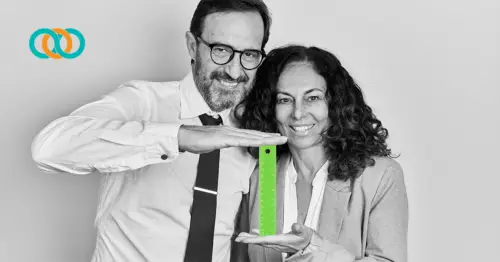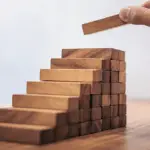- 4:41 to watch
- Introduction
- Transcript
The role of a Virtual Producer can often be harrowing. In one of the fastest-growing fields in learning and development (L&D), producers are expected to master the art of virtual production. They are the wizard behind the virtual curtain!
Virtual Producers require a unique combination of skills that balances deep platform knowledge with multitasking agility. It is akin to being an air traffic controller for webinars or virtual learning.
In this video, speaker, facilitator, and author, Kassy LaBorie, shares insights from her recent book Producing Virtual Training, Meetings, and Webinars: Master the Technology to Engage Participants. Specifically, Kassy discusses the most critical skills you should have to be successful and effective as a Virtual Producer.
Do you want to improve your learner’s virtual classroom experience? TrainingPros has the Virtual Classroom Producers you need. When you have more projects than people, let us find you the right L&D consultant to start your project with confidence.
Speaker: Kassy LaBorie, Kassy LaBorie Consulting
When we are producers, what are the skills that you think producers have? What do you think they need to be able to do this?
It's important for you to be thinking about what kind of support do I need? If I'm looking for someone to be my producer, am I going to expect them to be teaching along with me at times?
Do I want them to be commenting on the content that's coming through in the chat, on the screens? Do I want them on camera? I train people to be producers all the time, and many of them are resistant to being on camera.
They say to me, "I'm not going to have to be on camera. I'm behind the scenes. I'm the magician behind the curtain why do I have to be on the camera?" And it's like, but according to what Lewis just described, that person's going to be a different type of partner in the session.
And so you need to look good, sound good, and be able to appear on that camera in a way that will be professional in that setting, right? Other times you're never going to be on that camera. It depends.
I look at all these things, attention to detail, cool under pressure. Yes. Every one of these things. Yeah. And Lee, thank you for your note, too, that they just need to be able to be flexible enough to be able to work with whatever the facilitator needs, right?
To be able to jump into that role. When I was looking at, asking if I'm going to teach people to be producers, what do they need to learn? And look, it's very similar.
The brainstorm that you just gave me, this is what my network said too when I asked them and the people that I know all those same kinds of things. And so, this is what actually led me to put together a model.
Most Important Virtual Producer Skills
I put this entire model with the details of it in the handout so you can see this, but this is what I came up with. I very much like things in three.
And so you got to know the tech, you got to be able to support everything, and you need to be able to communicate about all of that. And if we were to do just a very short kind of quick breakdown of each one.
Look, of course, a producer knows the technology. They've learned it. They can use it, and they can fix it. Are they members of IT? what? Sometimes they are not always.
They need to be able to support everyone, support the technology, support the facilitator, presenter, trainer, and they need to be able to support the participants too. And that means connecting everybody to everything, partnering with everyone, and analyzing any kind of issues that are going on.
So they know what the tech is supposed to act like, but in the moment, they have to be able to adapt and be flexible enough to be able to analyze the situation for what it is. And then they have to be able to communicate about it.
I think listening is probably one of the most important skills because a lot of times, tech support can kind of jump to conclusions, and so it's really important to listen because we just don't have a whole lot of time to get it wrong.
So really listening, being able to present information. And I like to use the word appear for those producers that are on camera and to be able to appear professional enough that people want to listen and they know.
On that note, though, it's actually my experience that most producers are very loved. They are beloved. You don't get the stress of having to be the one who taught them, but they do have just all the positive of you helped everything work.
We really like you. She's the one who's given us homework. So it's very interesting, but when you bring it all together, I think these are the skills that people really need to focus in on.
It's a lot. And I wanted to give you this because sometimes you may not have a producer with you, or you may want to start practicing to become a producer. I know that the TrainingPros has lots of producers, and they're always looking for more.
And so this is something you can start to practice and get better at. Really practicing with that 15 minutes before help. I always like to make a document with all the things that I'm going to be copying into the chat.
Welcome. We will be starting at 12 Eastern. The phone number to dial in is; instead of retyping that stuff over and over again, make a document for all the things you're going to say. Here's where you can download your handout.
Here's the link to that activity. Have those things in a document so you can very quickly copy and paste them. Yeah. Producer notes. Exactly. And then the last one is that if you are working on your own and you don't have somebody helping you be a producer, that's when you give your audience the break, and that's when you do those breakout so you can focus on it.
You bring them back after five, 10 minutes, and you let them go into their breakout and work. It works out very nicely. There's so much you can do.
There are so many things you can do to make sure that your events don't suck.
- 2shares
- LinkedIn0
- Twitter0
- Facebook0
- Love This2









